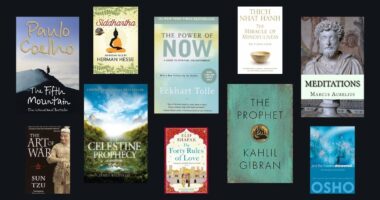Tips to Write Amazing Blogs: In today’s digital day and age, almost everyone’s a blogger in their own way. But if you decide to capitalise on your blogging and make it into a profession, there are several things you must keep in mind. Just having something to say to the world may not be enough to make it reach the world. Hence, there are several things to keep in mind. Following are ten basic tips to help you get started.
10 Tips to Write Amazing Blogs:
Diversify blog types
Most bloggers don’t make adequate use of different blog formats. Many use listicles and how-to guides, but there are so many other blog formats too! From infographics to personal stories, interviews and case studies, you can do anything with your blog. You could use checklists, newsworthy articles or even letter formats to write blogs. There are no restrictions on creative liberty – and this gives your readers no chance to get bored!
Increase the length of blogs
Most analysers think that a length of 1500 to 2000 words is ideal for blogs. This length ensures that people don’t think your articles are too short to have anything worthwhile to say. But at the same time, this prevents people from being intimidated by the length of your article too. The fact is that many people skim through information, so it should still be bulky enough to feel like there is enough material. But too much can seem demanding.

Include ample relevant pictures
Like I said previously, info dumps can become boring very quickly. If your readers look at only a mass of information, no matter how relevant or attractive it looks, they’re going to want to run away. Pictures are a great way to break up chunks of information such that you stay relevant to the topic. Plus they can themselves be used to convey information too. Interesting pictures can really give readers the satisfaction of a good blog.
Use more subheadings
This again circles back to my previous point. Masses of information, unless in chunks, can intimidate people. A great way to split up information is to use clear subheadings. This makes your blogs look organized and gives them a great format which is accessible and neat. Plus, it helps in the categorization of information, which aids writing for the writer and comprehension for the reader. It’s basically a win-win for the reader and writer.
Keep the target reader in mind
As writers, it’s easy to slip into the garb of creative thinkers and lose ourselves in the process of writing. While that may lead to the best creative input, it’s also important to keep the target reader in mind. It’s important, as bloggers, to deliver value to whoever reads the blog. So while your authorial voice is important and must shine through, so should your impact. And your impact will be maximum if you cater to the needs of your readers.

Begin with a bang
This might just be the most cliché advice in the world but it really rings true. Your beginning needs to hook the reader. This can happen in several ways. Maybe it’s really unexpected, or surprising, or salient. Maybe it’s just super unique. Or maybe it is contrary to what most people think. Either way, it should stand out from the several dozens of other pages and blogs that might convey similar information. The introduction can make or break a blog.
End with a thought-provoking idea
Just as important as the beginning is the ending of a blog. However, this is true in different ways. If the beginning should be catchy and hooky, the ending should ideally be thought-provoking. A blog post, whether informative or entertaining, should stay in the minds of the readers long after they’ve read it. In this way, the impact of a post can be ascertained by the trace it leaves in the memory of the reader. And a lot of this depends on the ending.
Research thoroughly
Truly, there is no substitute for research. Whatever you do or say in a blog, you should be a credible source of information. And this can only happen if you research your work thoroughly before writing it. There is no scope for ambiguity here. No factual errors or gaps in information are permissible. This makes you not just morally and professionally dubious but is also legally a grey area. You must add value, and you must present accurate info.

Don’t make grammatical and spelling errors
Now, this might seem very obvious at face value. But it’s still an important reminder to keep in mind because it’s easy to gloss over such errors. Laziness in editing, a lack of attention or just an honest overlooking of details can cause such errors. This interrupts the flow of the reader while reading and creates a red flag in his or her mind. Even though it’s easy for writers to overlook these errors, it’s the opposite for readers.
Don’t neglect SEO
Your blogs might be the deepest expression of your creative soul, but they also need to be marketed well. If they don’t rank among the top pages on google, not many people are likely to read them. This can dampen impact as well as sales and may have an adverse effect on your creativity too. In order to avoid this, using appropriate keywords, hashtags, and other features always helps.
Also Read: Most Influential Fantasy Books of All Time – 15 Books



